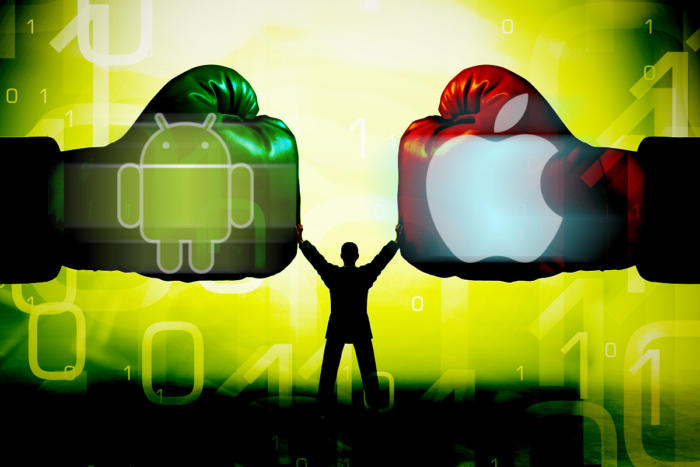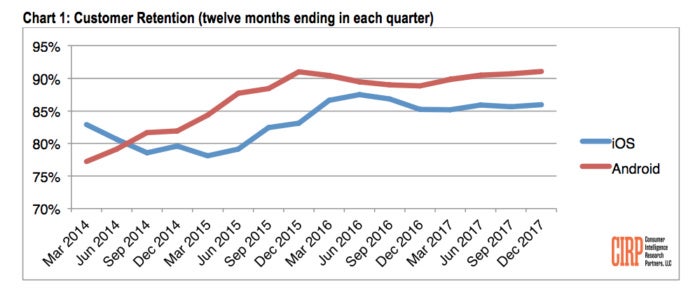advertisement
iOS vs. Android: When it comes to brand loyalty, Android wins
While Apple may have a rep as the brand users would walk across broken glass for, Android users actually have…

The data was collected as part of quarterly surveys of 500 users that have been performed by CIRP from March 2013 through December 2017. For its latest results, CIRP measured the percentage of customers who remained with each operating system when activating a new phone over twelve months ending December 2017.
More precisely, the study found that during the latter period Android loyalty ran from 89% to 91%, while iOS loyalty ranged between 85% and 88%.
advertisement
 CIRP
CIRP“Android user loyalty now slightly exceeds that of iOS users,” Josh Lowitz, a partner and co-founder of CIRP, said in a statement. “Over time, Android loyalty gradually increased, as it achieved parity in availability of apps, music and video, and as the user experience on the two platforms became more similar.”
Android users also benefit from a wider variety of phones from different manufacturers, allowing them to change hardware without swtiching to a new operating system, Lowitz added.
“iOS and Android compete more aggressively as the number of first-time smartphone buyers shrinks,” Levin said. “With fewer users of the legacy smartphone operating systems, basic phone owners, and first-time mobile phone buyers, Android and iOS now mostly gain and lose users to the other operating system.”
Mike Levin, partner and co-founder of CIRP, said brand loyalty for both Apple iOS and Android has hit all-time highs.
advertisement
Most people, once they’ve invested in the services and apps that go with a mobile OS don’t change readily – unless they just get totally angry at the company or its OS, according to Jack Gold, principal analyst at J.Gold Associates.
The difference between iOS and Android applications can also be substantial and require a significant learning curve to master, so users don’t often change “on a whim,” Gold said.
For example, Apple makes it intentionally difficult for users to move away from its iTunes music service. As Gold put it: “Why make it easy for your customers to abandon you for another vendor?”
advertisement
Adding to a device’s stickiness, there is also a clique mentality, where a user’s friends may all be on iPhones or Androids “and I want to stay with my crowd,” Gold added.
“So smartphone brand loyalty is fairly significant, especially at the higher end of the market,” he said. “That’s much different than lower-cost feature phones that were often sold on price and cosmetics, and where users didn’t purchase a lot of add-ons.”